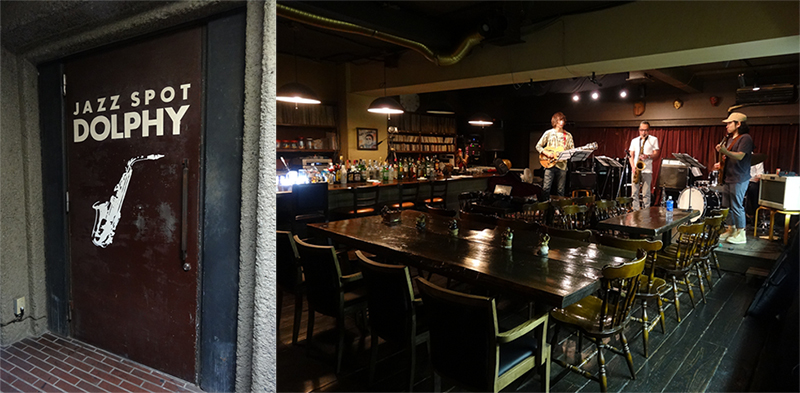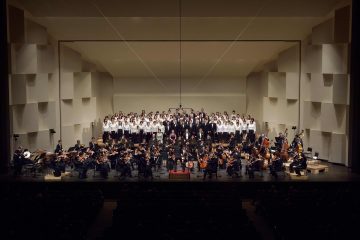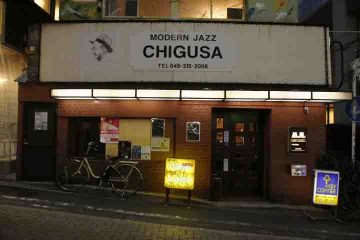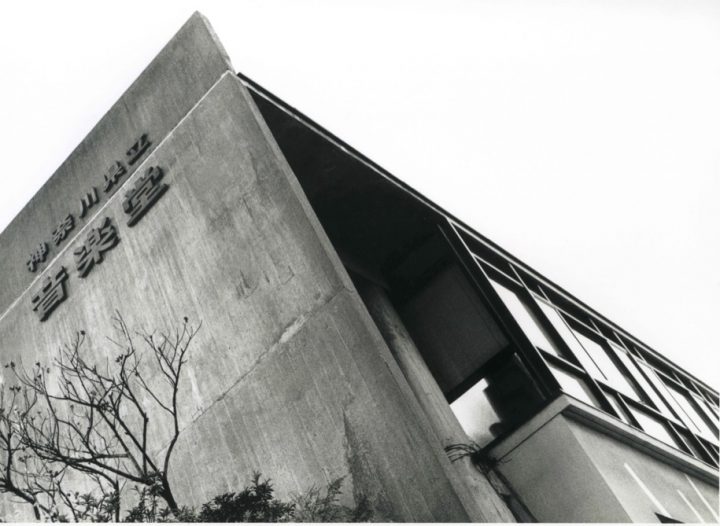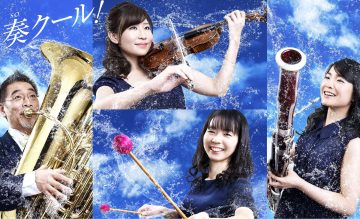Yokohama Jazz Club x bohemianvoodoo "Yokohama Jazz Recommendation"
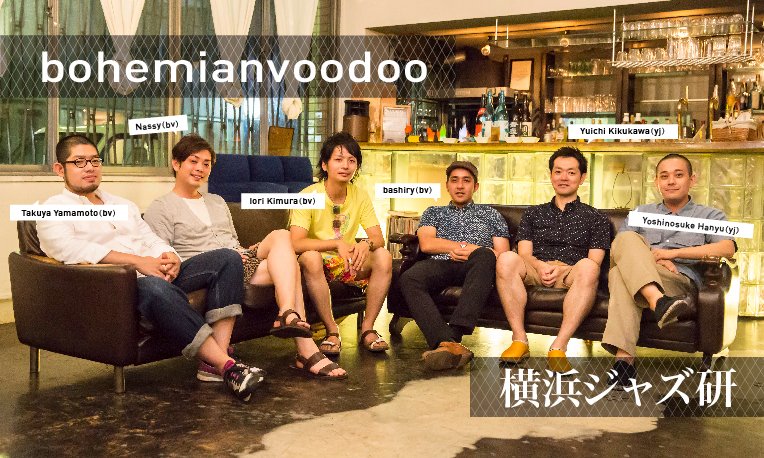
■ Yokohama Jazz Club Profile ■
Yokohama Jazz Lab is a club-style community-based event based in Yokohama, the birthplace of jazz in Japan. It started in 2007, and four researchers met every night to create their own ideas about jazz in response to the questions posed in Quincy Jones's masterpiece "This Is How I Feel About Jazz." They express the results of their research through DJ sets and lectures.
Based at Bar MOVE in Isezakicho, he hosts the "Sunday Afternoon Party" at Dolphy, a long-established jazz spot in Noge. In order to fulfill his mission of "revitalizing Yokohama with jazz," he has been actively involved in local activities in recent years, appearing at Yokohama City events such as the "Ookagawa Cherry Blossom Festival" and the "Yokohama Jazz Summit @ Motionblue Yokohama," and was selected as the DJ for the fashion show at the "Yokohama Port Opening 150th Anniversary Event (Y150)."
http://jazzken.youknowhat.com
■ bohemianvoodoo profile ■
Formed in 2008, they began performing live mainly in Tokyo and Kanagawa. In 2011, they set a new record for the biggest audience attendance at the venue at their first appearance at the live restaurant "Motion Blue Yokohama" in the Yokohama Red Brick Warehouse.
In December 2012, they released their second album, "SCENES," from the cutting-edge label Playwright. For more than half a year after its release, the album remained at the top of the charts at Tower Records stores, achieving unprecedented sales for a young jazz band in recent years.
In 2013, drummer Takatoshi Inoue was replaced by Takuya Yamamoto. The new members continue to tour nationwide. With their pop and melodic songs, dramatic developments and an exhilarating driving feel, they are a melodic instrumental band that can evoke various images.
http://bohemianvoodoo.jp
Interview & Text by Shoko Hamayasu | Photography by Yuji Uenoyama (CLIMBERS)
Since opening its port in 1859, Yokohama has developed as a point of entry for Western culture. There are various theories as to the origins of many things, including railways, banks, hotels, photography, beer, ice cream, and Neapolitan pasta, and it is said that "Japanese jazz" is one of them. This time, we interviewed the "Yokohama Jazz Club," which embodies the unique activities of contributing to the local community through jazz in this historic area, and bohemianvoodoo, a four-piece jazz band from Yokohama with deep ties to them. We talked to them about "Yokohama" and "jazz."
<Interview members>
■Yokohama Jazz Club: Yuichi Kikukawa (Director), Yoshinosuke Hanyu (hereinafter, Yoshinosuke)
■bohemianvoodoo: bashiry (g), Iori Kimura (p,key/hereinafter, Iori), Nassy (b), Takuya Yamamoto (ds/hereinafter, Yamamoto)
—First of all, please tell us about the background to the establishment of the Yokohama Jazz Club and its objectives.
Kikukawa : I used to be a DJ at an event at Bar MOVE in Isezakicho, but after that event ended, I was thinking about what to do next. I originally chose jazz music, so I wanted to do a jazz event, but Yokohama is known as the birthplace of Japanese jazz, so I thought I might as well do an event that focuses on live jazz and do something to revitalize the town. That was the trigger for the establishment of the company.
So I found three friends at Bar MOVE... and they are now the members of the "Yokohama Jazz Club". One of them (Makoto Abe) moved to Yakushima, but he uses Skype to participate in meetings and remix production remotely.
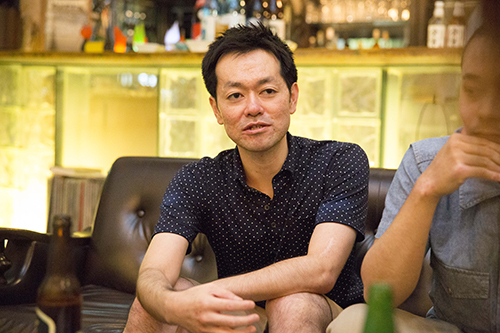
For people who don't know much about jazz, it can seem a little highbrow, pretentious, and hard to get into. We're working to spread the word to those people that "jazz is something that anyone can enjoy."
Also, since I happen to live in Yokohama, I would like to hold events that will help liven up the city.
Recently, although the event was ultimately canceled, we were invited to take part in the "Yokohama Port Opening 150th Anniversary Event (Y150)," performed at the "Ooka River Cherry Blossom Festival," and have also had the opportunity to take part in events linked to Yokohama city.
-There are a lot of really unique projects among the events you hold. You decide on a theme and have a DJ and band cover songs in a jam session, participants bring their favorite jazz music and exchange gifts, and you have various themes for each season...
Kikukawa : The members come up with ideas for things they want to do, discuss them in meetings, and refine them as they go along to carry out various projects.
Nassy : I've been to (the jazz club events) many times, but it's not just an event where they play jazz.
—How did Yokohama Jazz Club and bohemianvoodoo meet?
Iori : I met Yoshinosuke at Bar MOVE. Then, I was invited to an event with the unit that Abe Shin from the Yakushima branch, who I mentioned earlier, was in at the time, and I ended up appearing there too. After a while, I met bashiry there and started bohemianvoodoo.
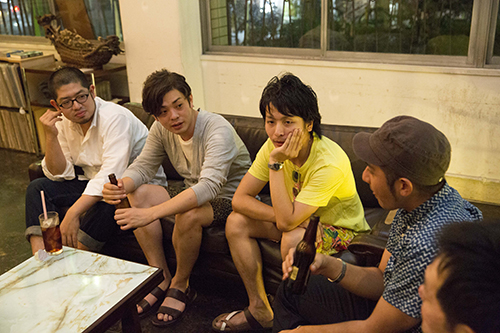
Yoshinosuke : But actually, I met Bashiry before Iori.
I met bashiry-kun at a Bar MOVE event and we became good friends. As an aside, as we got closer, we found out we were juniors in the same junior high school, and we got closer (laughs). And then I met Iori-kun... That's how it went. So, a little after we met, Iori-kun sent me a demo. At the time, Abe-kun was looking for a piano member, and that's how we started working together.
Iori : It feels like our network has expanded around Bar MOVE. bohemianvoodoo's first live performance was also held at a bar next to Bar MOVE. All the members of the Jazz Club came to see us, and since then, we've been performing at the Jazz Club's anniversary events.
Nassy : After starting the band, we performed at the Jazz Club's first anniversary event, and it was around that time that I started to find concerts really fun. However, the Jazz Club's audience is incredibly sensitive.
Yoshinosuke : It's not just that we're having fun and drinking alcohol (laughs).
bashiry : All the customers are keeping the rhythm on the backbeat (laughs).
Everyone : (laughs)
-By the way, what was your first encounter with jazz like?
Yoshinosuke : My mother knew a singer who ran a store, and she often sang jazz standards in front of me. I was about 4 or 5 years old at the time, so I didn't know the names of the songs, but I thought, "This is nice." That was my first encounter with jazz.
Kikukawa : I was in the brass band when I was in the third or fourth grade of elementary school, and my advisor told me about swing, saying, "This is the rhythm of jazz." That was probably my first exposure to jazz. But then, a senior in my junior high school brass band told me that the local junior high school brass band played "In The Mood" (a song composed by Joe Garland and performed by the Glenn Miller Orchestra, which became a hit) , and that was probably the first time I heard jazz as a song.
bashiry : I started consciously listening to jazz when I was in high school, but originally I had been listening to jazz since elementary school. That's because there is a festival called "Yokohama Jazz Promenade" in my neighborhood every year, and during the festival, various jazz bands play in dozens of places around town. There were famous bands and not so famous bands, but I remember growing up in touch with jazz in that way, listening to those bands on the street as I passed by, or being brought to the festival by my mother. So I have a lot of feelings for the "Yokohama Jazz Promenade".
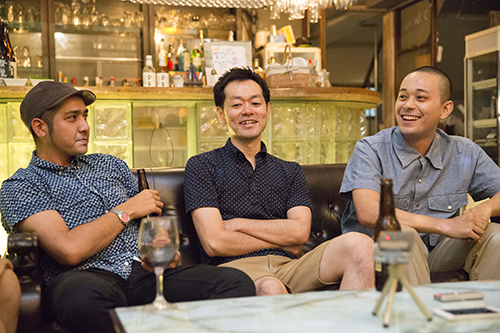
—That's a story that can only be found in Yokohama. I think it's only because you grew up in this area that you encountered jazz in this way. What about the rest of you?
Iori : I had a few encounters with jazz, but my father listened to Bill Evans and McCoy Tyner from the time I was born, so that was probably the first jazz I listened to. After that, my classical piano teacher in elementary school happened to be a jazz fan, so I was able to play Chick Corea and Sonny Rollins songs. I guess I could call this my second encounter with jazz.
—That's pretty precocious (laughs). And the teacher who got elementary school students to play jazz is amazing!
Iori : I also played jazz at my piano recital, improvising (laughs). I didn't understand any of the theory or anything, so I just tried playing phrases from the music I'd listened to up until then.
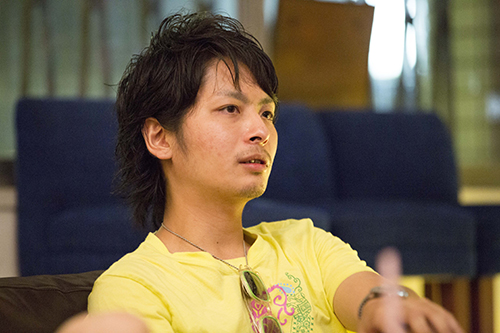
Everyone : Amazing (surprised).
Iori : Then, after entering university, I met Shikou Ito (also known as Shima&ShikouDUO, a unit with trumpeter Yusuke Shima) and started learning jazz piano. I then studied Tommy Flanagan and hard bop (a style of jazz that flourished from the mid-1950s to the 1960s) , and moved on to more essential aspects, which was the third stage.
Nassy : In my case, it took a long time to get to jazz. I started with soul music, but when I was in high school, "Free Soul" (a popular compilation series from Apres Midi Records, a label supervised by Toru Hashimoto) was very popular and was available in many record stores in Shibuya. So I bought McCoy Tyner's "Inner Voices" there. I didn't have any musical knowledge at the time, and I bought it purely for the cover, but I thought "This is some amazing music." At the time, I wasn't aware that this was jazz, but that's where I first encountered it.
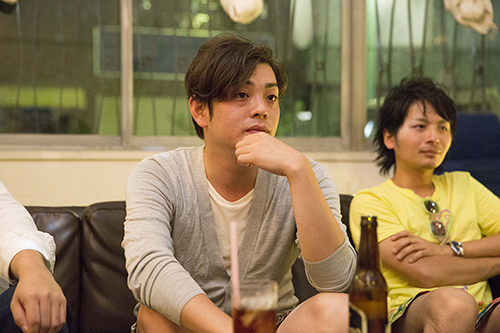
--'Free Soul' includes not only jazz, but also various other genres of music such as soul and funk, so you went through those before moving towards jazz.
Nassy : Yes. I was suddenly thrown into the jazz world, but I like jazz as one of many types of music, and that hasn't changed. I also started playing bass in high school, but at first I only played Mr. Children. Then, that summer I started playing Earth, Wind & Fire...and I even started wearing an afro wig.
Iori : That was quite a leap (laughs).
—So, what about you, Yamamoto-san?
Yamamoto : I was in the brass band, just like Kikukawa-san. I actually joined at first because I wanted to play the drums, but because it was a brass band I wasn't really allowed to do that, so I just kept playing percussion. So while I wasn't able to play the drums I listened to drum CDs for reference, and the one I happened to choose at the time was a hard fusion CD... Cassiopeia, for example. (*Fusion = jazz from the 1960s onwards that was strongly influenced by other genres such as rock, and which is particularly technically oriented.)
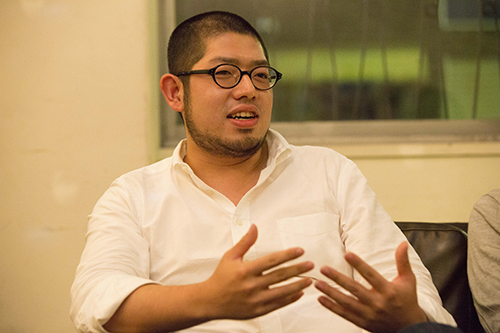
I also listened to songs written by drummers and songs from sessions, but there was a time when I no longer knew what to listen to.
But if you go back in time, the roots of it all are in the bebop era (a style of jazz that was all the rage in the 1940s and 1950s) of Miles Davis and Coltrane. I listened to that kind of music and thought to myself that I definitely wanted to play the drums someday, so I played percussion in the brass band.
—Thank you each for answering. So, what are your impressions of Yokohama, the birthplace of jazz?
Yoshinosuke : Among the people here, I and bashiry are the only ones who were born and raised in Yokohama, but Jazz Ken and bohemianvoodoo are also from Yokohama. If you've been in Yokohama for three days, you're already a Yokohama kid (laughs).
Iori : Yokohama is said to be the birthplace of jazz, so there are a lot of jazz bars. A long time ago, I used to talk to people on mixi and go to jam sessions, and I met bashiry for the first time in a few months when I went there to hang out. We got excited and decided to play together. We were living in Yokohama at the time, so that's why we call ourselves a band from Yokohama.
bashiry : Basically, I like Yokohama (laughs). The people are nice, and it's the place that nurtured us musically. Yokohama is also the place where we had people who really responded to our output and really supported us. I want to cherish it in the future.
Kikukawa : By the way, Yokohama is apparently the city with the most jazz bars in Japan.
bashiry : There's also a jazz girl (laughs)
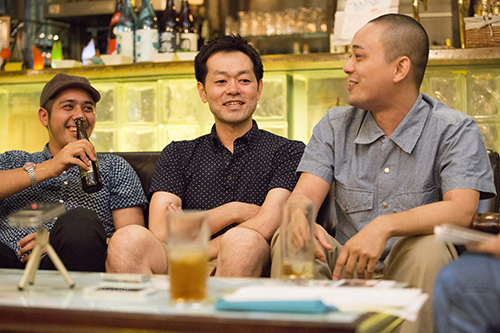
-what is that?
bashiry : It's like a jazz snack bar with live music.
Iori : We used to work part-time at places like that. We cleaned the toilets, made drinks, and played music on the side.
Nassy : I used to go there drinking when Bashiry was working there part-time (laughs).
-There are so many shops like that in Yokohama. So what about the jazz scene in Yokohama itself? What changes have there been between before you founded Yokohama Jazz Lab and now?
Kikukawa : Hmm, to be honest, I don't feel like I've made much difference. I don't think I'm being of much use (laughs). But I've made more friends. I've gained more fans, and I've become friends with people in shops and neighborhood associations, so I guess I'm starting to get recognized.
-So what do you think about the relatively new so-called club jazz scene?
Iori : The Jazz Club plays jazz in the club, but it's not the so-called programmed club jazz. It's not mainstream at all.
Kikukawa : I play jazz with live sounds as a given, so I hardly ever use any programmed sounds. Sometimes I do, but about 80% of the music is live.
bashiry : It's like a loud jazz cafe where you can stand up and make noise (laughs).
Yamamoto : It means playing jazz in a club (not club jazz).
-I see.
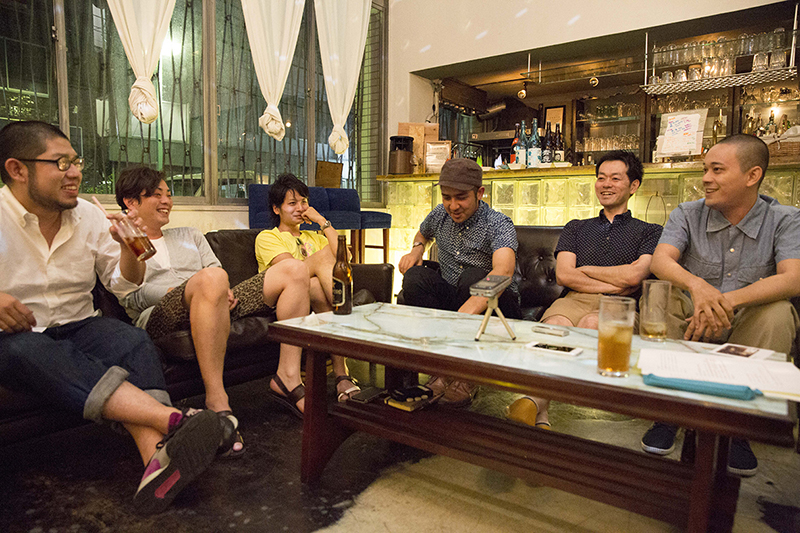
Kikukawa : When we held an event at "Chigusa " (a jazz cafe established in 1933) in Noge this spring, people other than the regular customers of Jazz Ken came. There were customers who knew the name (of Chigusa) but couldn't come to the shop, and there were also regulars of Chigusa.
bashiry : There were also senior members in their 60s and 70s.
--It was a very wide age range.
Kikukawa : The shop is currently run by a group of regulars called the "Chigusa Club," including the editor-in-chief of "Ad-lib" (a Japanese jazz music magazine that ceased publication in 2010) . He's from his 70s, and we asked him to DJ.
bashiry : They played Herbie Hancock and other artists.
Kikukawa : At that time, it was an event that brought together about three generations. In that sense, our events may be becoming something like town revitalization. We will be holding another event at Chigusa on Saturday, September 14th.
--So it really is a case of communicating through jazz.
Yoshinosuke : People who come to the jazz club spread the word to their friends, saying "There's this kind of event," and then the people who came along with that trend went to the live shows of friends like Iori-kun and Bashiry-kun... That's how it is. There are a lot of people who go back and forth between our respective fields.
Iori : Jazz Club's customers who didn't know us before saw our performance for the first time and fell in love with our band, and conversely, our customers who didn't know about Jazz Club learned about us. That kind of crossover happens too.
Kikukawa : I said earlier that we haven't contributed much to the scene, but that's not our goal. We want to succeed not as a club event, but as a town revitalization event. So, I think we've been successful in that sense.
--The direction and concept of this event are completely different from what people generally imagine as a club event.
Kikukawa : I like programmed club jazz and house music because it's pleasant to listen to and danceable, but in the jazz club we're deliberately narrowing our scope to pick out more essential songs.
Yoshinosuke : We also have events where we ask customers to bring in CDs or records of songs that fit the theme of the day, and have them explain the songs on the microphone while playing them. One day we played songs with the theme of "Club Jazz after 2000."
- Finally, may I ask both of you about your future prospects?
Iori : I'd like to do more live performances in places that are rooted in the Yokohama area. We'll be performing at the Yokohama Museum of Art in Minato Mirai on Sunday, September 29th, and I'd like to increase the number of opportunities like this.
bashiry : Also, the official video for the "Yokohama Jazz Promenade" I mentioned earlier uses bohemianvoodoo's songs as background music. I'm very happy about that. I hope we can get more and more involved with Yokohama in this way.
Yokohama JAZZ PROMENADE 2013 Promotional Video
Kikukawa : Like them, we would like to do more events that are closely connected to Yokohama in the future, but what I've especially felt recently is that it's fun to work with people who are considered great pioneers in jazz.
There is a free jazz journalist named Teruhito Soejima, and we once held an event where we screened footage he shot at the Moers Jazz Festival in Germany, and a DJ played music in between. At that time, we really got a lot of power from Soejima. He is an old man of about 85 years old, but he is said to be one of the two Japanese journalists recognized in the world, and he is still active and says that he is "pursuing free jazz to the fullest."
I think it would be nice to work with people who have that kind of passion, or to enjoy the same events with the 60-70 year olds from the Chigusa Club (a group of people who admire the first famous Chigusa manager, Mamoru Yoshida) . I would also like to work with people in their 20s and younger generations. Actually, I'm thinking about doing something with a real jazz club at my university.
All : That’s interesting!
"Jazz" was born in the late 19th century and early 20th century, and was once loved by people as dance music. Although it has undergone various changes and been subdivided throughout history, it is originally a music that exists as something popular rather than highbrow, something very free rather than strict, and it is still an exciting music that can be enjoyed by people of all ages today. If you have avoided jazz because you thought it was too difficult, why not experience the fun of it through jazz in Yokohama? If you don't know where to go, why not start by casually visiting the events and spots recommended by the Yokohama Jazz Club?
(Interview and text by Shoko Hamayasu)
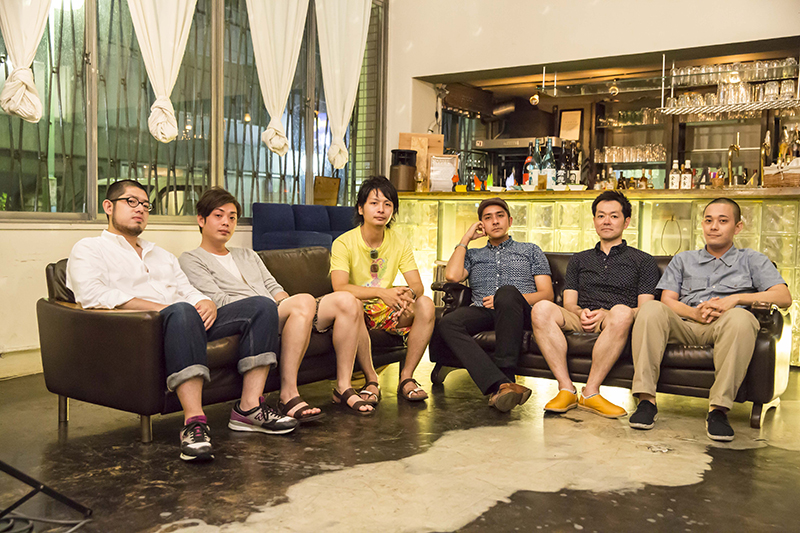
Venue cooperation: nitehiworks
<This event has ended.>
<Click here for upcoming plans for “Yokohama Jazz Club” and “bohemianvoodoo”>
9/7 (Sat) Bohemianvoodoo LIVE IN Mutsukawa Bar TOMMY'S CAFÉ, Gumyoji, Yokohama http://www.geocities.jp/tommys_cafe/
9/14 (Sat) 24th Yokohama Jazz Club @ Jazz Cafe Chigusa http://noge-chigusa.com/
September 29th (Sunday) Live concert to celebrate the 30th anniversary of the start of construction of the Minato Mirai 21 Project @ Art Square. Details will be uploaded soon at http://bohemianvoodoo.jp/live.htm .
※ The following is an event featuring Yoshinosuke Hanyu at the Yokohama Jazz Club
9/6 (Fri) evergreen - a sound of pop flavour - Time: 22:00 Venue: Bar MOVE Free entry
9/21 (Sat) Ripples Time: 18:00-22:00 Venue: Shibuya SUNDALAND CAFE Admission: ¥500 http://www.sundalandcafe.com/
<Click here to listen to the music video for “bohemianvoodoo” by Adria Blue>
<Click here for the new album from “bohemianvoodoo”>
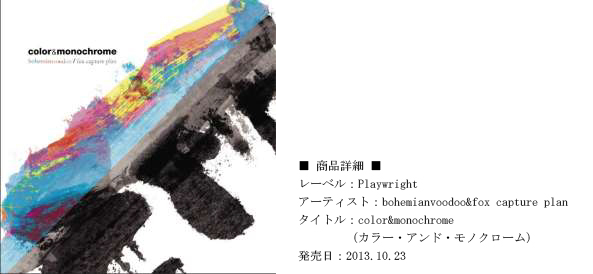
<One of their recommended spots is Noge's long-established jazz bar "Jazz spot DOLPHY">
Yoshihiko Inoue Group LIVE@DOLPHY rehearsal scene
Jazz spot DOLPHY2-17-4 Miyagawa-cho, Naka-ku, Yokohama Daiichi Nishimura Building 2F
http://www.dolphy-jazzspot.com/
■Inquiries and reservations : TEL 045-261-4542
For inquiries , please contact info@dolphy-jazzspot.com
Live booking : reserveseats@dolphy-jazzspot.com
